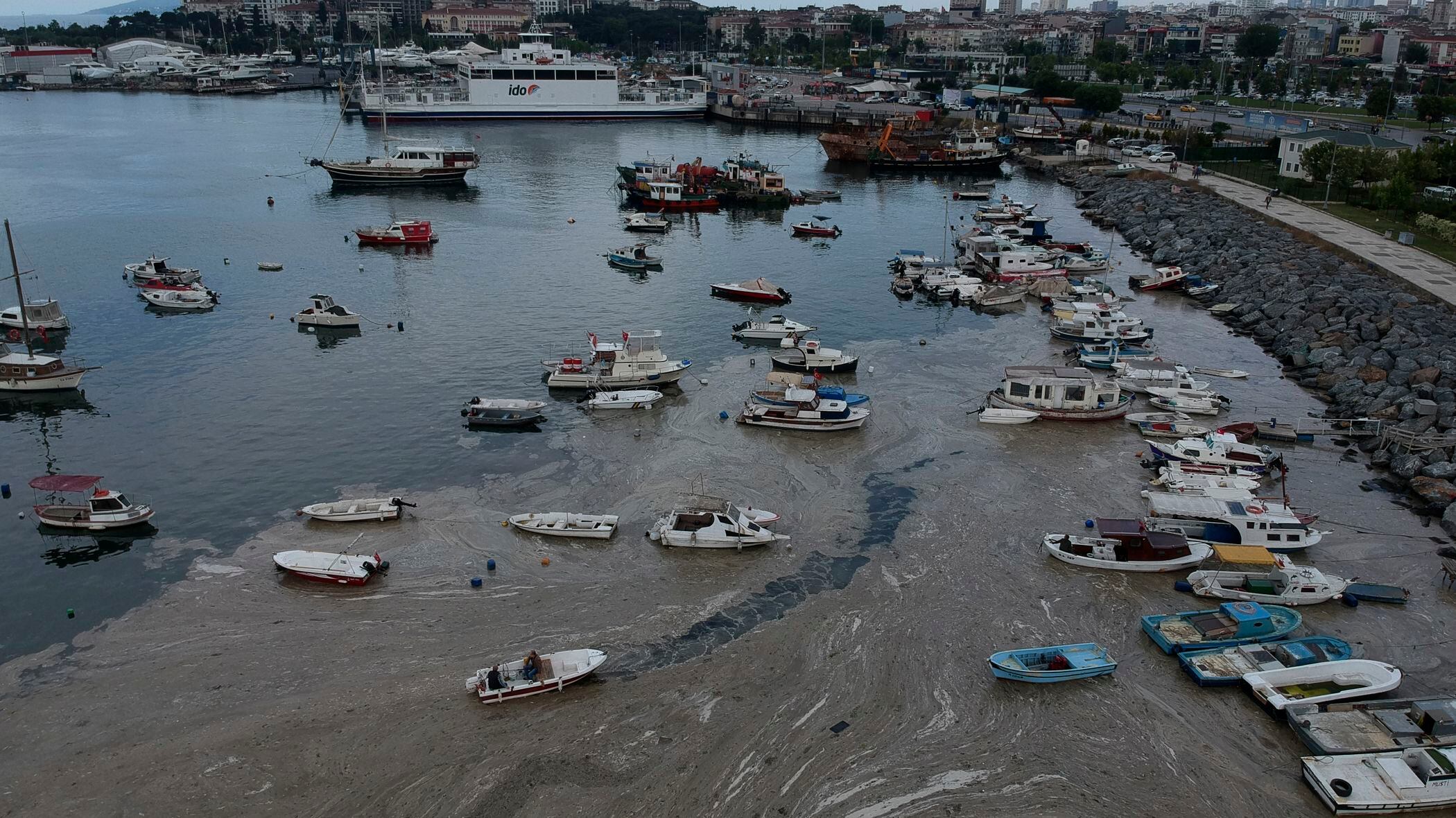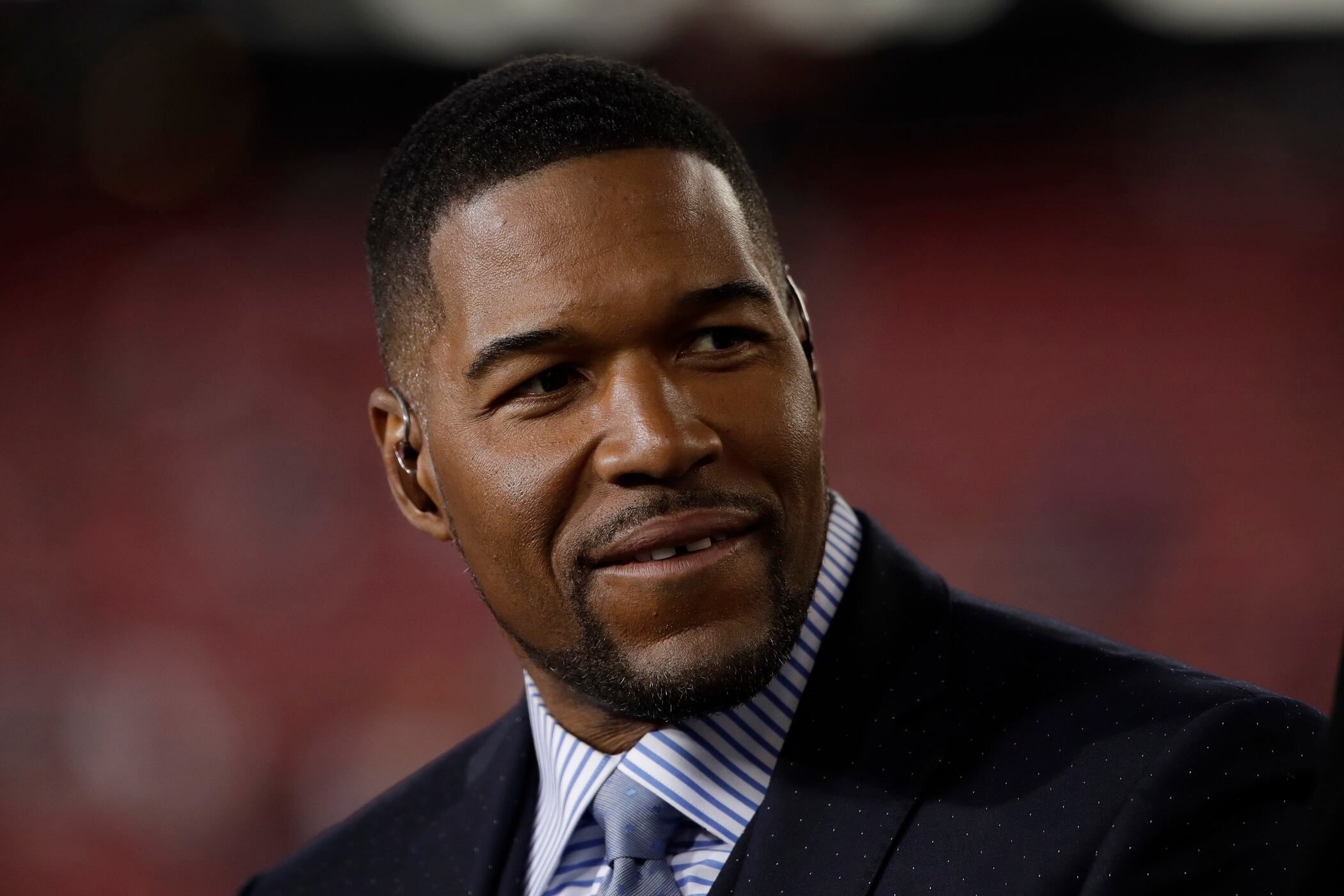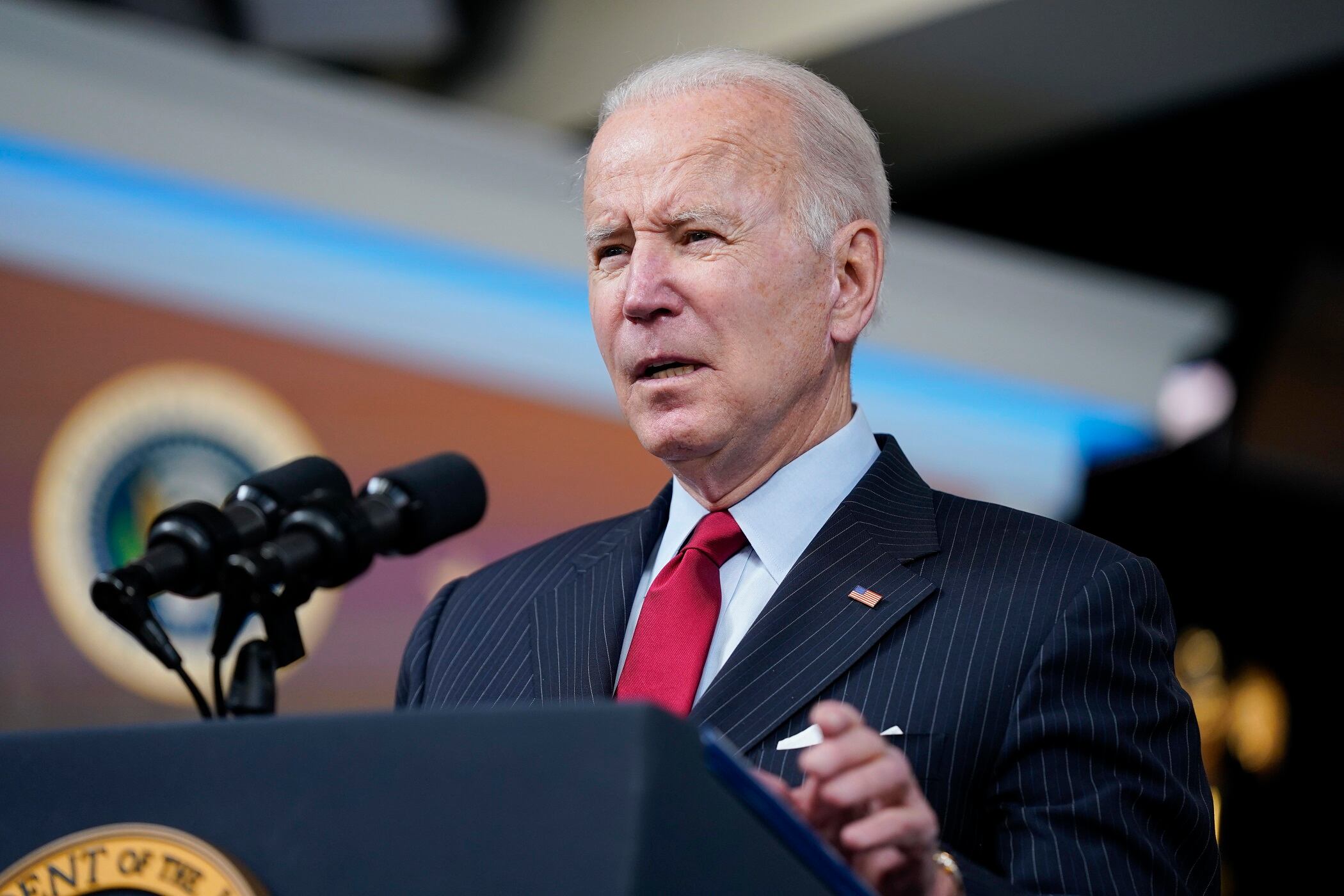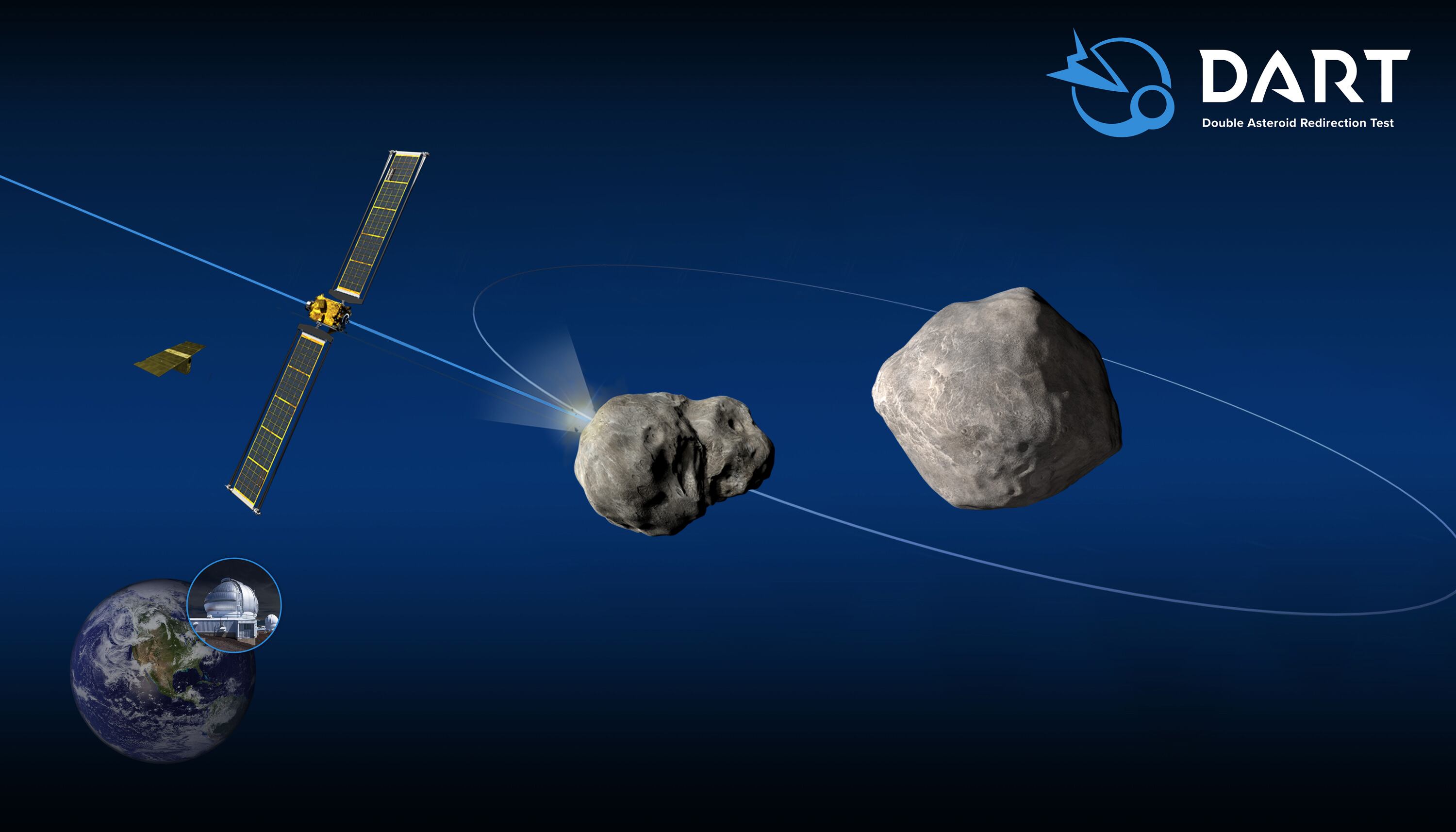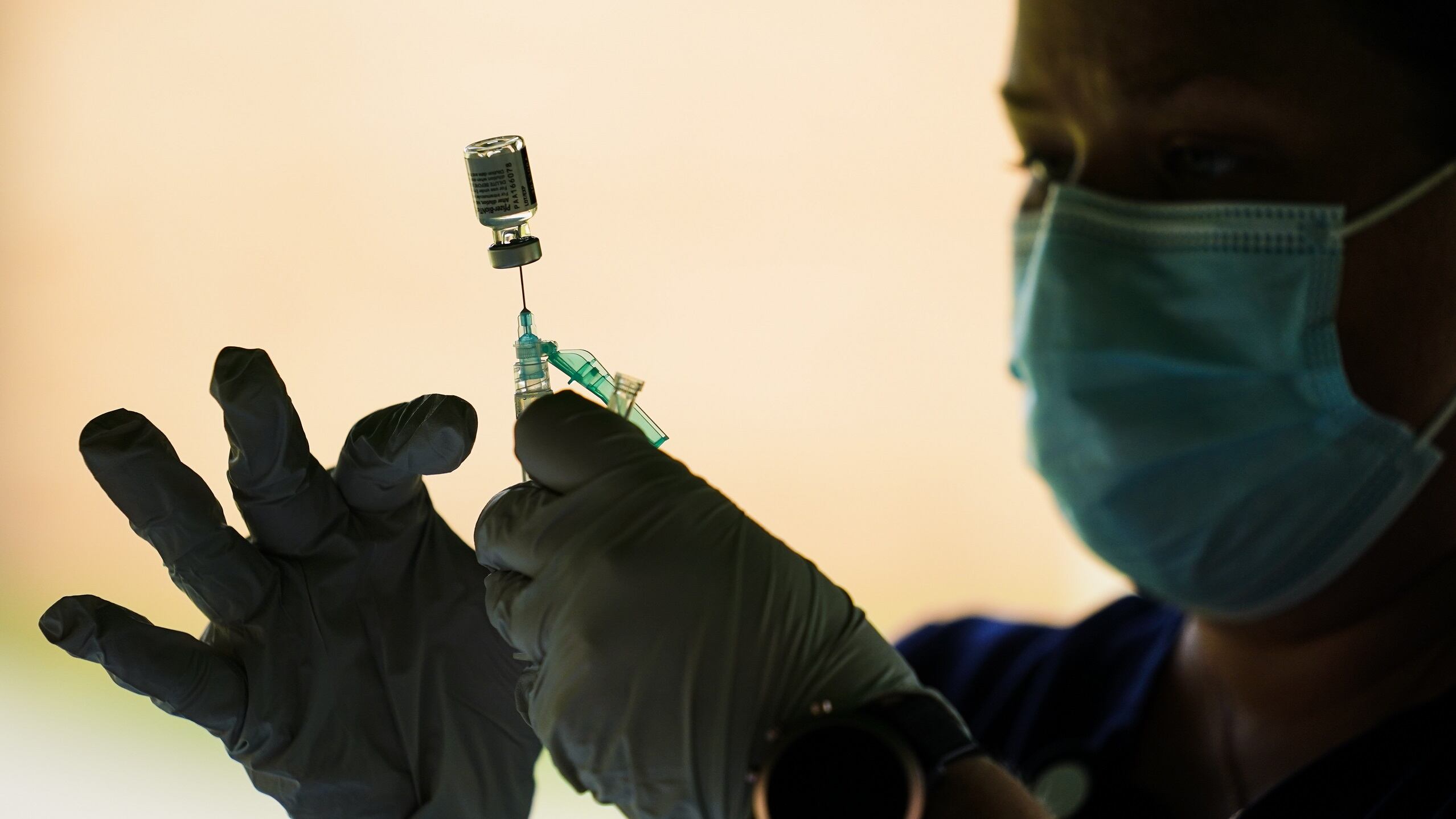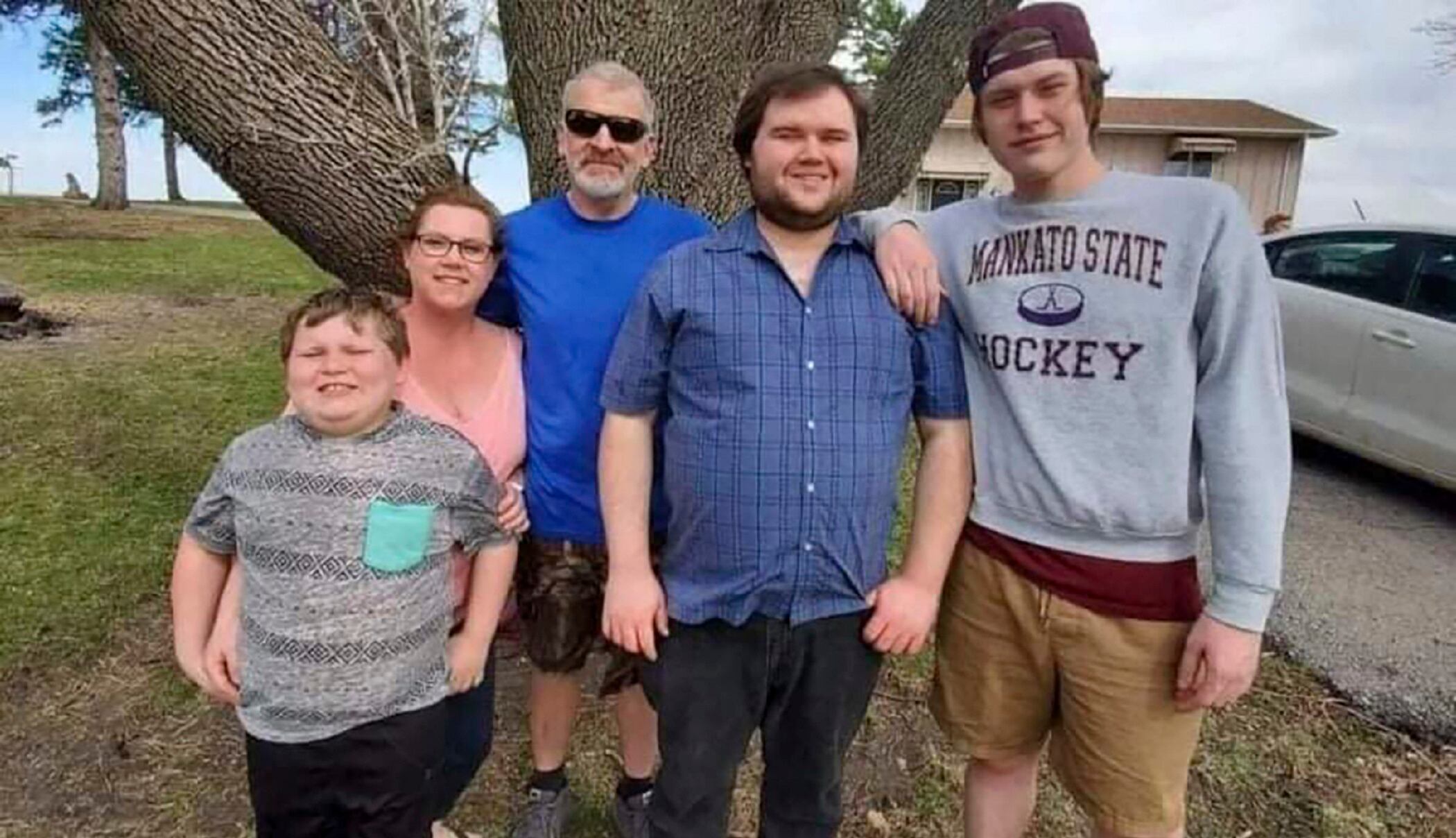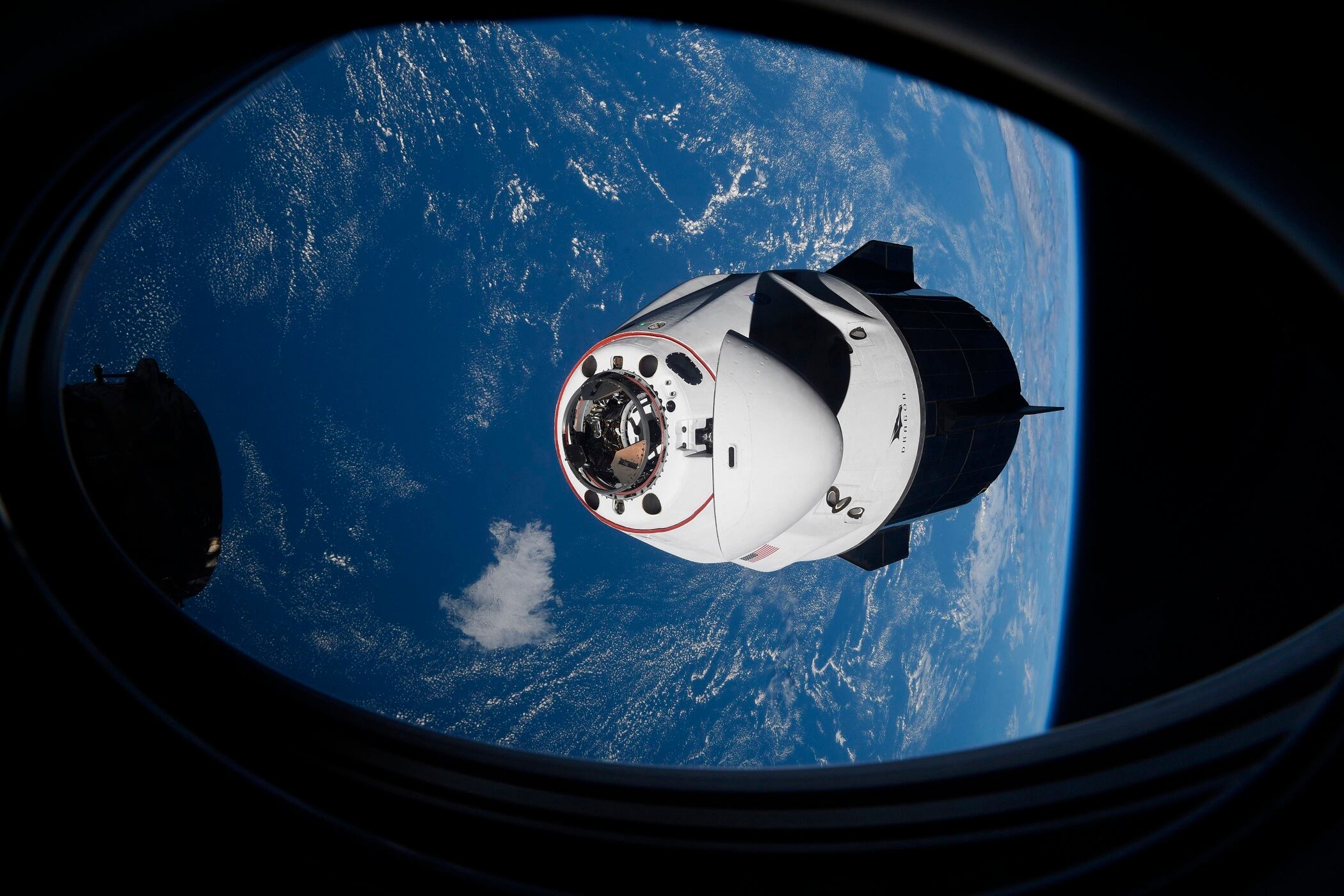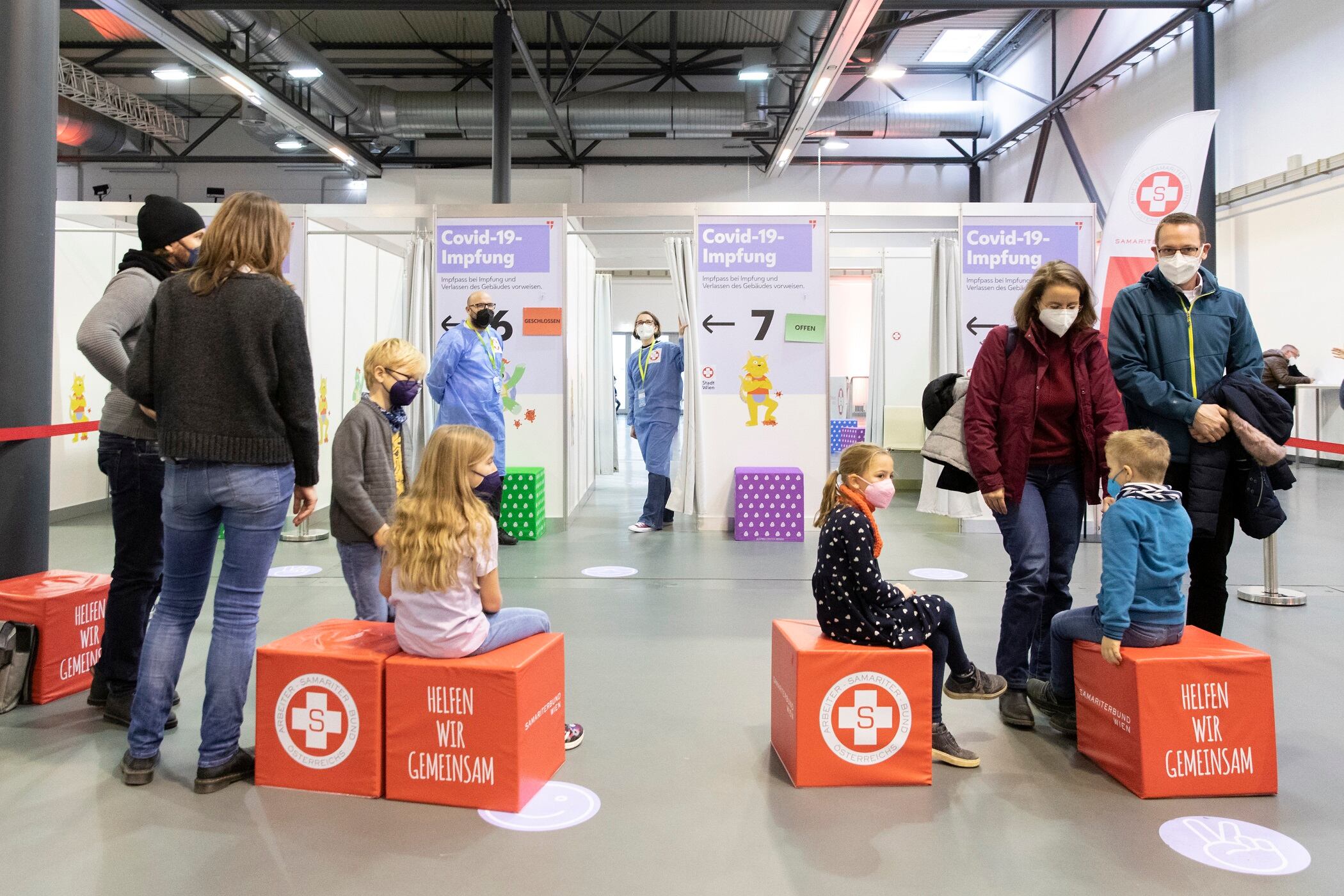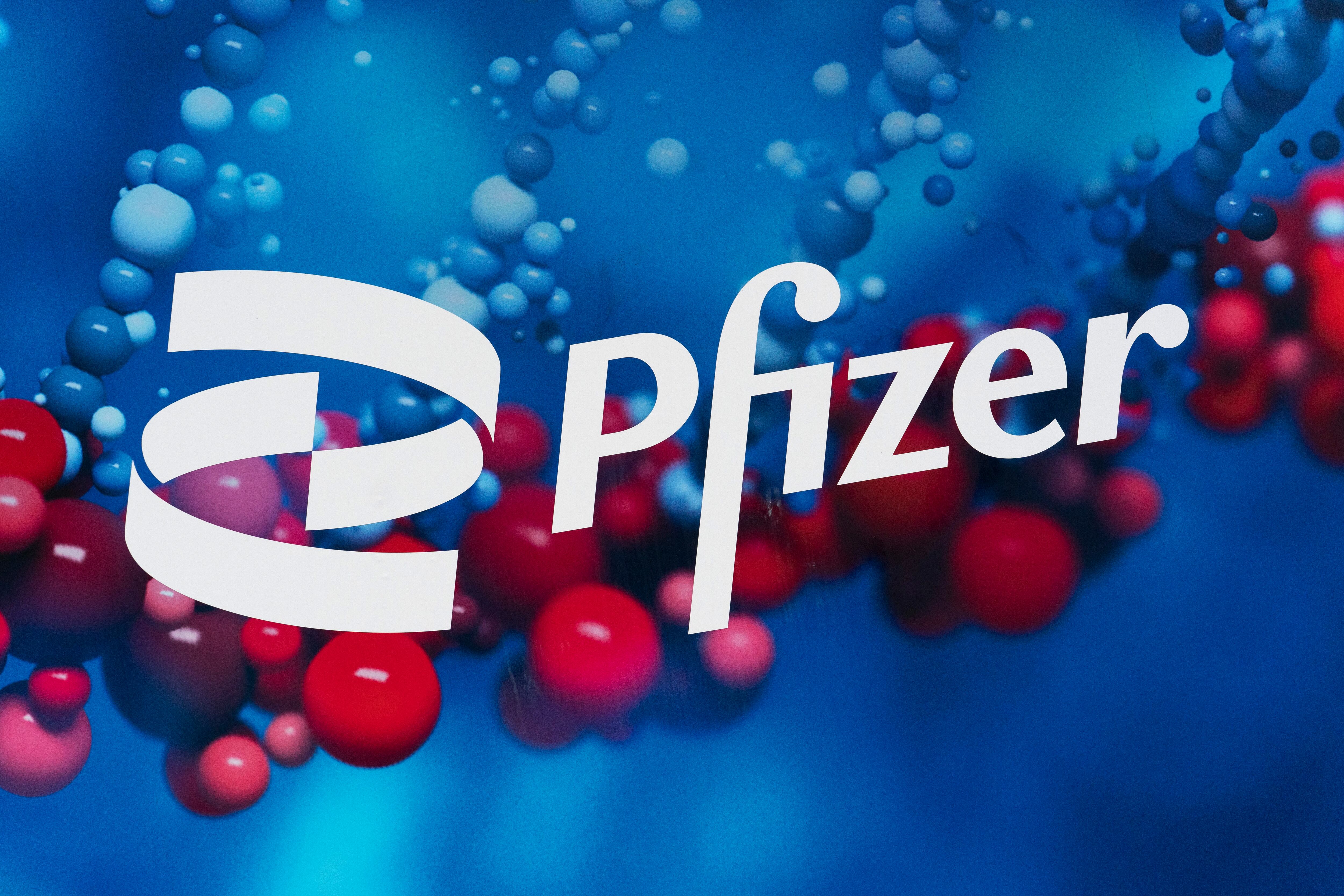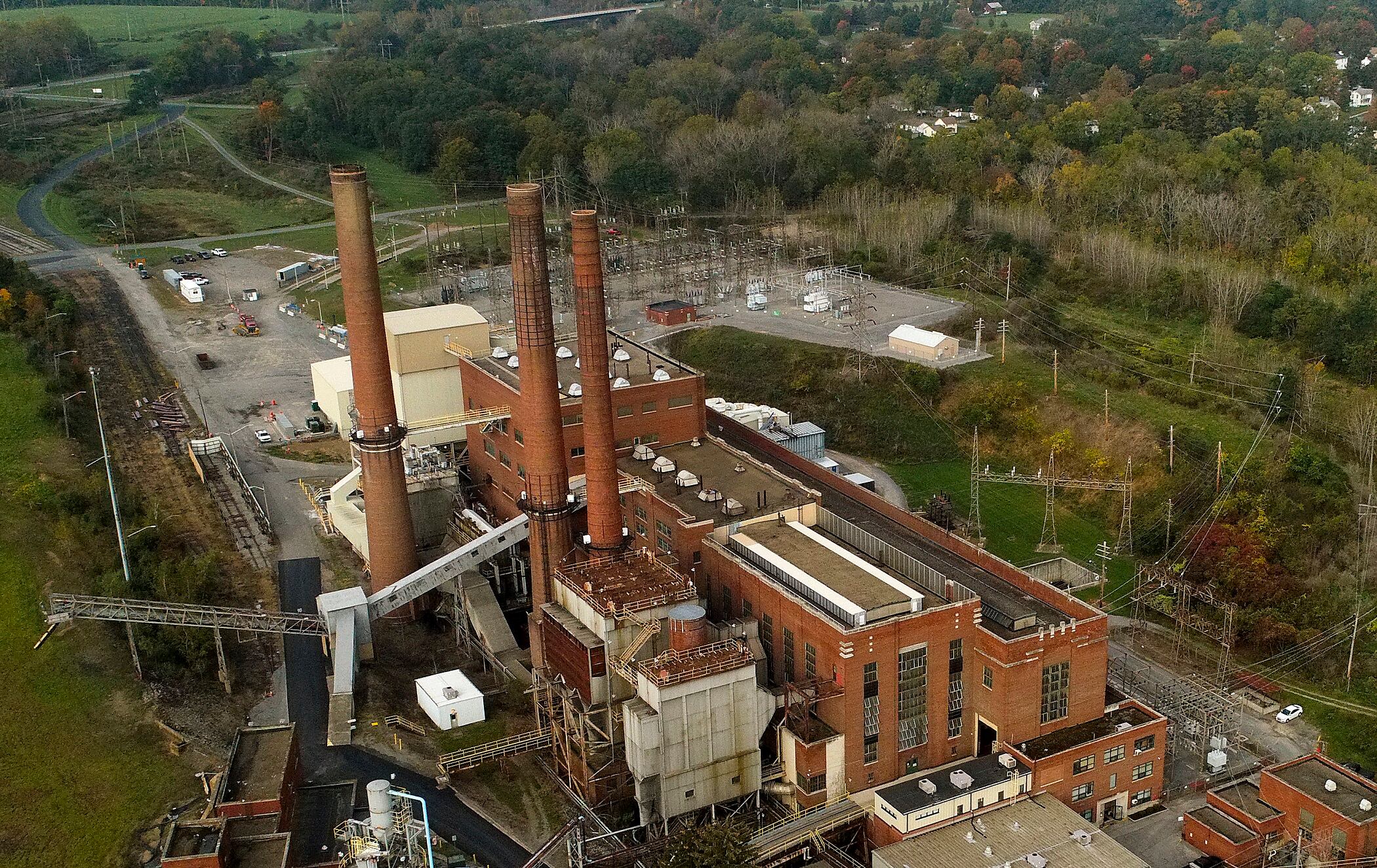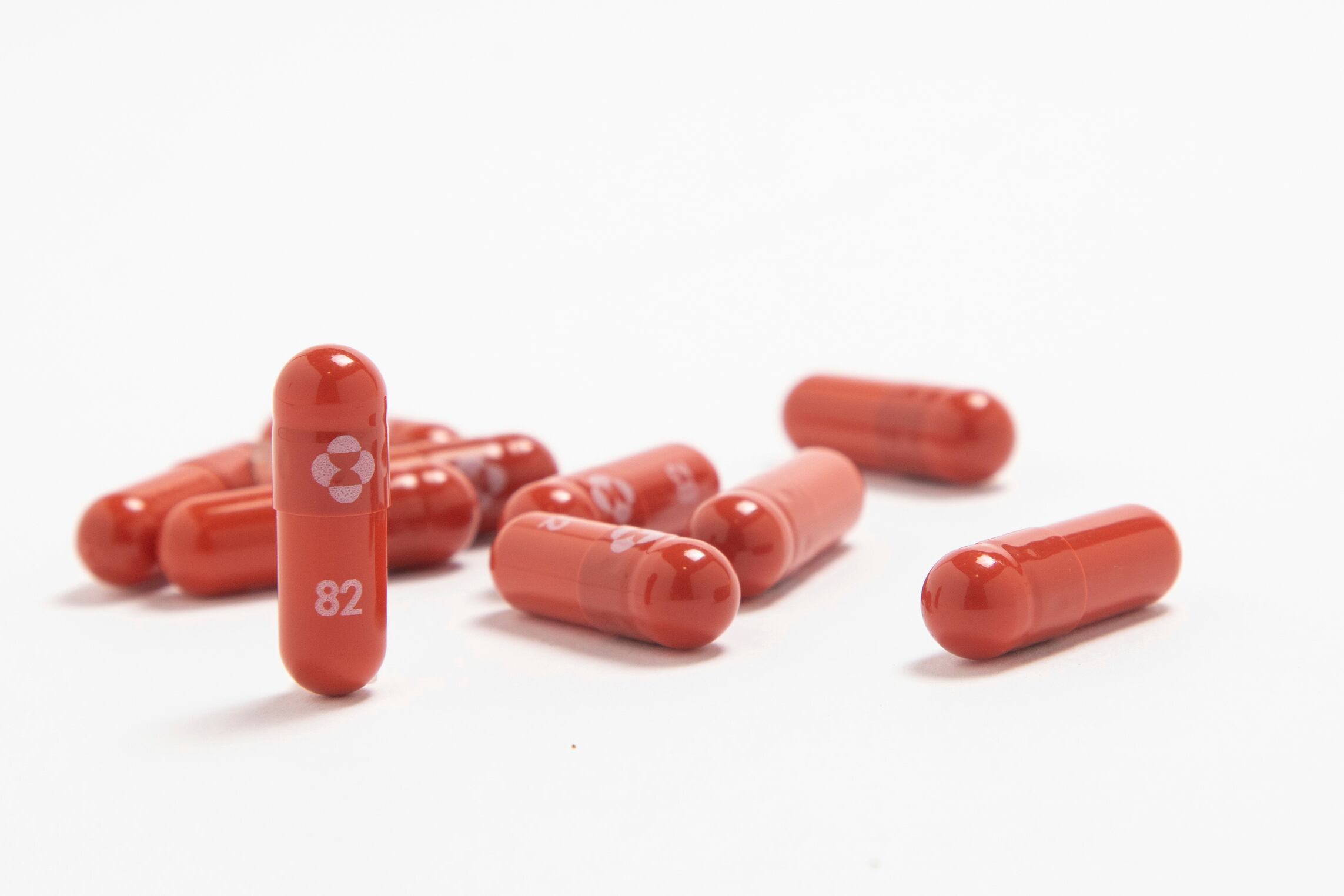Turkey’s president promised Saturday to rescue the Marmara Sea from an outbreak of “sea snot” that is alarming marine biologists and environmentalists.
A huge mass of marine mucilage, a thick, slimy substance made up of compounds released by marine organisms, has bloomed in Turkey's Marmara, as well as in the adjoining Black and Aegean Seas.
Turkish President Recep Tayyip Erdogan said untreated waste dumped into the Marmara Sea and climate change had caused the sea snot bloom. Istanbul, Turkey’s largest city with some 16 million residents, and five other provinces, factories and industrial hubs border the sea.
Marine mucilage has reached unprecedented levels this year in Turkey. It is visible above the water as a slimy gray sheet along the shores of Istanbul and neighboring provinces. Underwater videos showed suffocated coral covered with sea snot.
Erdogan said he instructed the Ministry of Environment and Urbanization to coordinate with relevant institutions, municipalities and universities. Teams are inspecting waste water and solid waste facilities, along with other potential sources of pollution, he said.
“We will save our seas from this mucilage calamity, leading with the Marmara Sea,” Erdogan said. “We must take this step without delay.”
Marine experts say that human waste and industrial pollution is choking Turkey’s seas. They say the rise in water temperatures from climate change is contributing to the problem.
Good Morning America co-host Michael Strahan will be among the crew on Blue Origin’s next flight to space.
President Joe Biden is ordering a record-setting 50 million barrels of oil released from America's strategic reserve to help bring down energy costs.
All the news you Need2Know for Tuesday, November 23, 2021.
The U.S. is moving to open up COVID-19 booster shots to all adults, letting them choose another dose of either the Pfizer or Moderna vaccine.
U.S. health officials say an estimated 100,000 Americans died of drug overdoses in one year. That's a total the nation has never seen.
Russian officials on Tuesday rejected accusations that they endangered astronauts aboard the International Space Station by conducting a weapons test that created more than 1,500 pieces of space junk.
Austria has taken what its leader called the “dramatic” step of implementing a nationwide lockdown for unvaccinated people who haven’t recently had COVID-19.
Pfizer Inc. said Friday that its experimental antiviral pill for COVID-19 cut rates of hospitalization and death by nearly 90% in high-risk adults, as the drugmaker joins the race to bring the first easy-to-use medication against the coronavirus to the U.S. market.
Inspired by the framework of the Paris Climate agreement, the Crypto Climate Accord (CCA) is just one industry effort to spread the message that crypto should rise to the challenge.
Britain granted conditional authorization on Thursday to the first pill shown to successfully treat COVID-19 so far.
